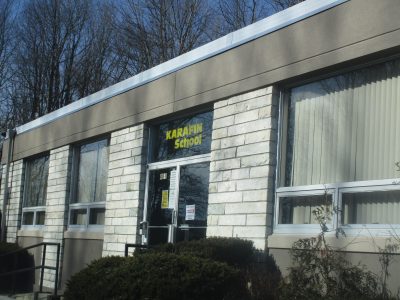Mount Kisco Special Ed School Pushed to Brink Over Tuition Flap

A state Education Department (SED) determination has placed a Mount Kisco school that serves students with learning and social and emotional disabilities in financial peril because the school must pay districts that sent pupils to its classes.
The Karafin School, which is privately owned and operated and located on Radio Circle for students in grades 9-12, has been forced to reconcile payments with the New York City Department of Education and districts throughout the lower Hudson Valley dating back to the 2013-14 school year.
Last spring the school, which had not seen its state-set tuition rate increase over the past seven years, was flagged by SED “due to underspending and costs disallowed by SED per tuition methodology,” according to a department spokesperson.
Dr. Bart Donow, the Karafin School’s owner and director, said that according to the state’s calculations the school took in more money than it spent and was also providing higher salaries for some of its teachers and employees than their certification allowed. He said the school needs to retain qualified staff in a prohibitively expensive environment.
“Our salaries are ridiculously low because our tuition prohibits us from getting any more,” Donow said. “The only source of income that comes in besides a federal grant, which I have to spend on material for the kids, is the tuition rate.”
The state set the per-pupil tuition rate at $3,047.04 a month for 2019-20 and it decreased to $3,028 for the current school year, he said.
As a result of the SED findings from the previous years, the Karafin School is responsible for repaying $257,000 to the New York City Department of Education and a similar amount to numerous districts in Westchester, Putnam, Orange, Dutchess and Ulster counties as well as some in Connecticut.
Donow said the lower Hudson Valley districts are unlikely to ask for the money back because many had sent or one or two students, so it wouldn’t be financially feasible for them to reopen their books from several years ago. Also, if the Karafin School went bankrupt, districts would spend far more money anywhere else to provide the mandated services.
However, with New York City accounting for roughly half of the school’s enrollment and due just over a quarter of a million dollars, Donow needed to agree on a $7,000-a-month payment plan out of the $104,000-a-month tuition from the city.
Typically, the Karafin School has had close to 75 students a year. However, whether it’s the pandemic or other factors, current enrollment is about 58 students.
Donow said he hopes the school will be able to survive. He launched a GoFundMe drive, which has had just over $26,000 in contributions.
“The cost of nothing went down during that time period,” Donow said of the seven years where rates have been essentially frozen. “We paid the teachers more. We gave them raises without having really the money at hand to do it under the assumption it would be there.
“Our rent went up in cost. Everything goes up. So when they finally had their reconciliation for all of those years, they said ‘Well, you spent money you didn’t have’ – that we agree on – ‘but you spent money inappropriately because these people you paid didn’t deserve that.’”
Donow, who has been operating the Karafin School for about 40 years, is hiring an attorney to challenge SED’s conclusions. He said one of his teachers, who studied at Oxford and went to Columbia University to get her teaching degree and has 34 years’ experience, is now making about $64,000 a year.
Dating back to 1980, the state never quarreled when the Karafin School would provide raises to their teachers and staff, Donow said. But last spring, shortly after the onset of the pandemic, they were notified. He said the fiscal crunch may have something to do with it.
“I definitely think that it’s part of that, and it’s about a masochistic kind of thing where the public education sector does not want places like us to exist because we are private,” Donow said.
The SED spokesperson said that the department is advocating for a state redesign of tuition rates for providers of special education programs and services. That is established by SED and approved by the Division of the Budget. SED establishes annual tuition rates for more than 1,000 approved special education programs at approved private schools, public schools, special act school districts and BOCES.
A set escalator based on growth General Support for Public Schools costs would provide some cost certainty.
Meanwhile, Donow hopes the Karafin School, which opened in 1958, can weather this storm.
“Nobody knows that we’re here until they need us,” he said.

Martin has more than 30 years experience covering local news in Westchester and Putnam counties, including a frequent focus on zoning and planning issues. He has been editor-in-chief of The Examiner since its inception in 2007. Read more from Martin’s editor-author bio here. Read Martin’s archived work here: https://www.theexaminernews.com/author/martin-wilbur2007/
